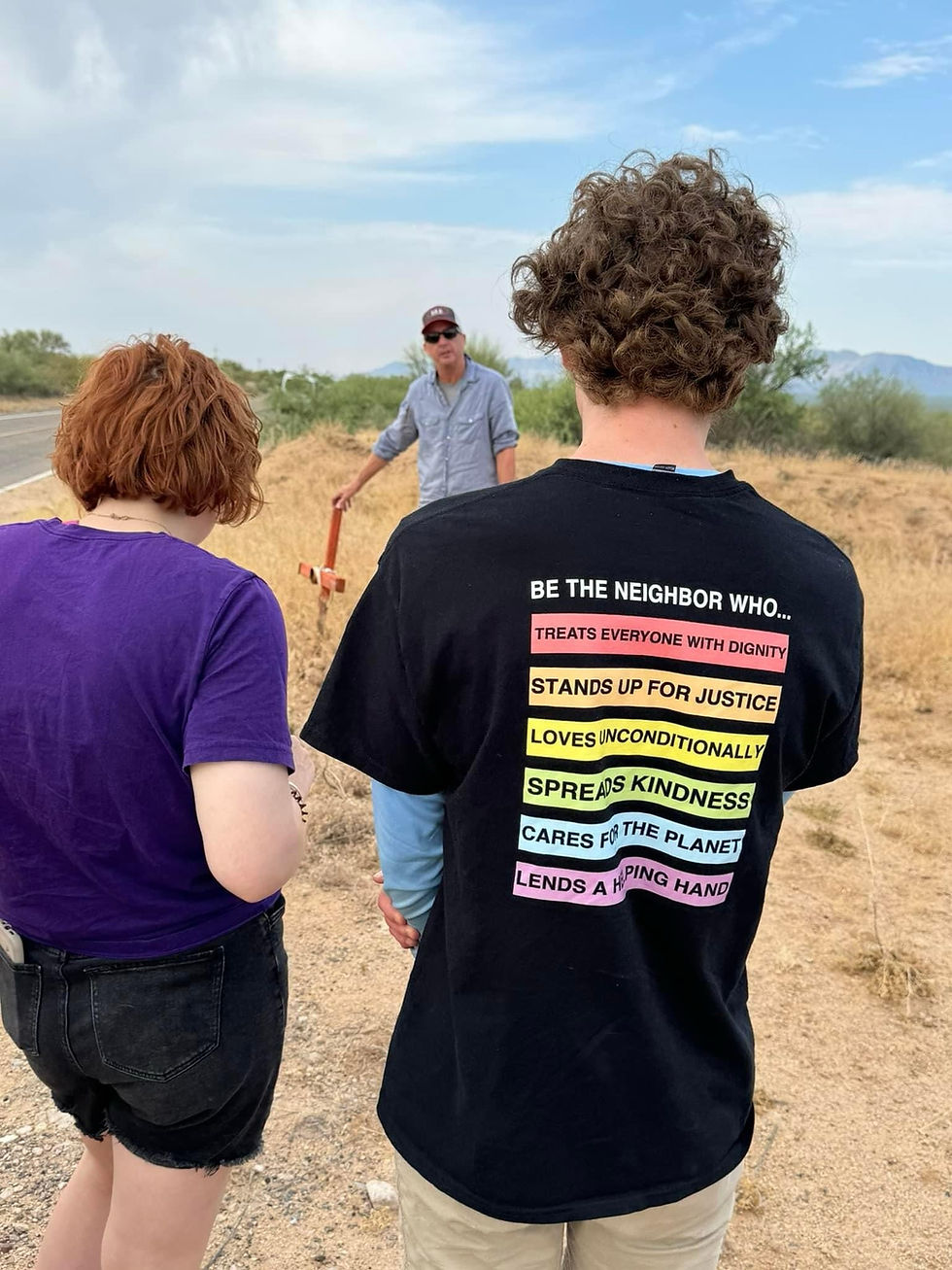Summer Staff Reflection: Austin and Dallas, TX
- kristen1971
- Sep 6, 2024
- 3 min read
Reflection by Chrys Beckley
Austin Reflection

I interned for June 9th,16th, and 23rd at the Austin Be the Neighbor site during the
summer of 2024. The Austin site was focused on food injustice and the variety of
intersectionalities that lead to not having access to healthy, clean food. Through our
partnerships with neighbor organizations including Community First, Texas Impact, and
Caritas I learned so much about this social justice issue.
One thing that stuck out to me was the change in language around the issue made by those who engage in it every day, changing "food desert" to "food apartheid," because a desert is a naturally occurring phenomenon. To call it "apartheid" is to say that this injustice was intentionally created, often through a long history of denying human rights, including food, to communities of black, brown, and Indigenous cultures.
I asked to be placed at the food-centered sites because of my realization of my own
privileged access to not only the food I wanted, but also the food that fits any dietary or
cultural needs I might have. But, as I often reminded my new friends coming into these
wide-spanning conversations for the first time around privilege, and injustices, we don’t
want to make you feel guilty about your privilege. We want to shine a light on it to show
you what you have then ask, "now that you are aware of this privilege, what will you do
with it?"

This summer taught me so much about myself and what I want to do with my
privilege, specifically working with youth: standing beside them as their faiths expand to include justice work and assuring them that the church has more than enough room and infrastructure for that work.
I am going into my second year of seminary with a completely new outlook on what is possible by blending my passion for social justice work with my deep spiritual connection. Now I also have the practical knowledge of how to structure that work in my homework. This summer pushed me to evaluate what I thought possible for my own capabilities. I was surprisingly comfortable with the constant travel and weekly changing schedules. Be the Neighbor created a life-changing summer for me and my faith in surprising, practical, and yet-to-be-discovered ways.
Dallas Reflection
I also interned at the Dallas Be The Neighbor site from July 7th to 14th this summer. The site was centered on Urban Poverty and food injustice. Through collaborations with our neighbor's organizations like Rainbow Days, Seeds of Faith, and Bonton Farms. I, along with our groups, learned not only what Urban Poverty was, but how it is different from other types of poverty we see, with its own distinct causes, and layered experiences.
I personally did not know much about urban poverty before this experience, other than
knowing that most people apart from the working class were technically living at or near the poverty line, if not below it. While that is a part of it, urban poverty, like many other social justice issues, was created and then sustained through the targeted exclusion of often Black, Brown, Indigenous, and Hispanic communities. With that foundation, it is often impossible for them to move from the poverty line into more security. This creates a cycle of them being in homes or apartments but barely making rent each month with little left for any
other necessities. Groceries are often the first thing to be cut from a budget, making food insecurity a key issue for low-income families. Learning about the creative ways that our neighbors are addressing both the practical results of this issue and the psychological effects on families grew my faith in ways that surprised me. It also encouraged me to see the ways God's faces shine even in the darkest parts of humanity. The Dallas site also gave me the language to properly understand things that I engaged with as a working-class seminary student in my regular life.




Comments